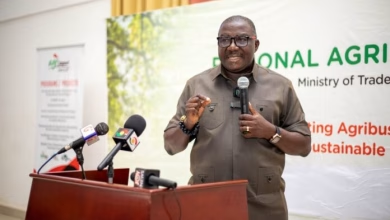The Bank of Ghana (BoG) is stepping in to calm the foreign exchange market after the Cedi’s recent depreciation.
Governor Dr. Ernest Addison assured Ghanaians that the central bank has sufficient reserves to address the current pressures.
Cedi Faces Challenges
Dr. Addison acknowledged that the Cedi, which had been relatively stable, has encountered some difficulties in recent weeks. He emphasized, however, that the BoG is closely monitoring the situation and has the resources necessary to intervene.
Market Pressures and Limited Inflows
The Cedi’s decline is attributed to a surge in corporate demand for dollars and a strengthening U.S. dollar. Financial analysts warn that the outlook for foreign exchange inflows remains uncertain, potentially placing further strain on the Cedi in the coming months.
Limited Reserves Raise Concerns
While the BoG’s gross international reserves reached US$6.2 billion in March, usable reserves are estimated to be around US$4 billion, providing only 1.8 months of import cover. Analysts caution that these levels may not adequately shield the Cedi from external shocks.
Central Bank Intervention
Data suggests the BoG has already injected US$270 million into the forex market this year through interventions, adding to the US$713 million used in 2023. Analysts anticipate the need for further intervention, especially considering the reported weakness in credit to the private sector.
Boosting Lending Through Incentives
To encourage banks to lend more, the BoG has implemented a new policy. This “dynamic cash reserve ratio” ties the amount of reserves banks must hold to their loan activity. This aims to incentivize banks to increase lending to businesses.
Focus on Reserves and Future Actions
Markets are closely monitoring the BoG’s foreign exchange reserves and its willingness to utilize them to stabilize the Cedi. The central bank’s actions in the coming weeks will be crucial in determining the currency’s future direction.
